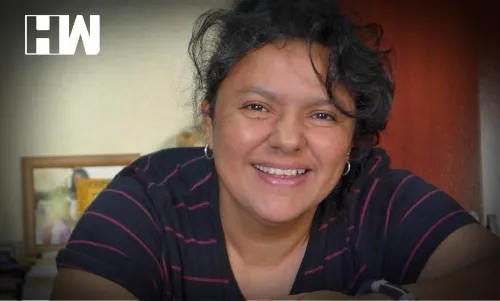The world must be made a safer place for people working to protect the planet, who sometimes pay with their own lives for their activism, UN Human Rights High Commissioner Michelle Bachelet said on Tuesday.
“Protecting the environment goes hand-in-hand with protecting the rights of those who defend it,” she told the UN Human Rights Council in Geneva, which is holding its annual month-long session.
Dangers of speaking out
Ms. Bachelet revealed how speaking out and standing up for environmental rights can come at enormous cost as activists have been killed or subjected to abuse, threats and harassment.
“At particular risk are people who speak out against deforestation, extractives, loss of cultural heritage or identity, or large scale-agribusinesses and development projects – including those intended to produce clean energy, such as mega dams,” she said.
Many environmental human rights defenders are also indigenous peoples, or members of local communities or minority groups – or those representing them.
Ensure accountability
She said entire communities may face threats and intimidation when someone speaks out on their behalf.
Ms. Bachelet underlined that States have an obligation to respect and protect the rights of environmental human rights defenders, and the communities they represent. Authorities must also prevent and ensure accountability for attacks.
These actions are in line with a Council resolution adopted last year which upholds the right to a healthy environment, she said.
Duty to regulate
“In addition, it is critical that States effectively regulate businesses and hold them accountable for human rights violations,” she said, while corporations also have a similar duty, as outlined in the UN Guiding Principles on Business and Human Rights.
Ms. Bachelet advised that prior to undertaking any climate project, both governments and businesses must carry out human rights risk assessments.
“If indigenous peoples’ rights are at risk of being adversely affected by such projects, it is crucial that their free, prior and informed consent is obtained,” she said.
Additionally, the rights to information, participation and justice are also protected under international human rights law, and further stipulated in environmental accords.
When these rights are upheld, “both the earth and the people who defend it are better protected”, said Ms. Bachelet.
UN support worldwide
The UN rights chief also reported on some of the global work of her staff.
“All around the world, my Office is committed to supporting States, businesses and environmental human rights defenders in all of their efforts to protect our planet,” she said.
For example, over 200 human rights defenders in the Pacific region have been trained to help boost sustainable development, business and human rights in the context of climate change.
In Southeast Asia, OHCHR is monitoring cases of harassment, arrest, killings and disappearances of environmental human rights defenders, while working with governments towards ending punitive measures levelled against activists.
Meanwhile, staff in Mexico and Kenya are supporting environmental human rights defenders and their networks.
As an independent media platform, we do not take advertisements from governments and corporate houses. It is you, our readers, who have supported us on our journey to do honest and unbiased journalism. Please contribute, so that we can continue to do the same in future.

